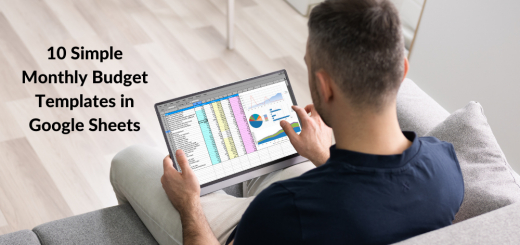How Budgeting and Debt Management Are Related
When you are dealing with debt, it can be difficult to know where to get started.
The key to a successful debt management strategy is a budget. This is because budgeting helps you eliminate your debt by helping you figure out how much you can afford to pay off each month.
Let’s explore how you can use budgeting and debt management to take control of your finances.
How Budgeting Can Help With Debt Management
A budget can help you tackle your debt more effectively. With the help of a budget, you can take the guesswork out of debt management.
Without a budget in place, you are flying blind when it comes to paying down your debt. While you probably keep up with the minimum payments, you may not have a firm grasp on how long it will take to eliminate your debt.
A budget can help you map out how much you have available for debt repayment each month. You will be able to put as much towards your debt as possible and see a clear path towards eliminating your debts for good.
How to Build a Budget and Tackle Debt Management
The idea of using a budget to manage your debt effectively isn’t entirely new. But it can be easier said than done.
Here’s how you can build a budget that works with your debt management goals.
1. Determine Your Monthly Income
First, you’ll need to figure out your monthly income. Of course, you probably have a general idea of how much you earn each month. However, you’ll need to determine the specifics to build an effective budget.
As you add up your income, include all your revenue sources. These might consist of income from your regular job, a side hustle, investments, and more.
Once you add up your monthly income, consider looking for ways to boost the total. With a higher income, you’ll be able to tackle your debt more quickly.
Related: Why Undebt.it Beats the Best Debt Payoff Spreadsheets
2. Add Up Your Expenses
After you have a clear idea of your monthly income, it’s time to look at your expenses. These include anything from food and housing to travel and entertainment.
You should include both your regular expenses and your minimum debt payments. Unfortunately, it can be challenging to add everything up accurately when you do this manually.
Luckily, you can tap into handy technology to make this process much easier. YNAB, otherwise known as You Need A Budget, is the perfect software to help you tally your expenses.
With the help of YNAB, you can easily set up your expense tracking so that you never miss a beat. The best part? YNAB integrates with Undebt.it, making budgeting and debt management a breeze.
Whether you choose to keep track manually or take advantage of a budgeting app like YNAB, tracking your expenses is a critical part of your budgeting success.
Additionally, once you have a handle on your expenses, take some time to consider which ones you can eliminate from your budget. If you look closely, there are likely a couple of costs you can cut back on.
You may choose to completely cut these expenses out of your life or temporarily pause certain ones during your debt repayment journey. Either way, any expense you cut will provide some wiggle room to help you pay off debt faster.
Related: YNAB Review 2021: The Best Budgeting App?
3. Allocate the Funds You Have Available to Debt Repayment
After you have a better idea of your income and expenses, it’s possible to create a budget that will work with your debt management goals. After all, it can be difficult to make a plan without knowing what funds you have available to tackle your debt.
Start by subtracting your expenses from your income. Hopefully, you’ll arrive at a positive number that you can use to tackle your financial goals.
Depending on your other financial goals, you can determine how much you can put towards debt management each month.
The good news is that you don’t have to craft a debt management plan all by yourself. Instead, you can take advantage of the free budgeting and debt management resources offered through Undebt.it.
With the helpful tools offered by Undebt.it, you can choose a debt management strategy that will work best for your goals.
4. Stick to Your Budget
The final step is to stick to the budget you create. Of course, following a budget is easier said than done.
Although it can be tough to stick with your budgeting and debt management goals, the financial rewards are entirely worth it.
Beyond the money, the idea of becoming debt-free could be the lifestyle change you’ve been wanting. Imagine what your life could be like without the burden of monthly debt payments.
It’s possible that eliminating your debt will completely transform your life.
Take some time to consider your reasons for starting your debt repayment journey. You may want to break the paycheck to paycheck cycle, or you might be trying to choose a life of financial freedom.
Whatever your reasons, make sure to celebrate your progress along the way so you stay motivated to stick with your budget.
The Bottom Line
Budgeting and debt management are not mutually exclusive concepts. If you’ve been struggling to manage your debt effectively, then a carefully crafted budget could be exactly what you need.
As you continue your debt management journey, consider taking advantage of the free resources available through Undebt.it. You can use these tools to streamline your debt management process.


